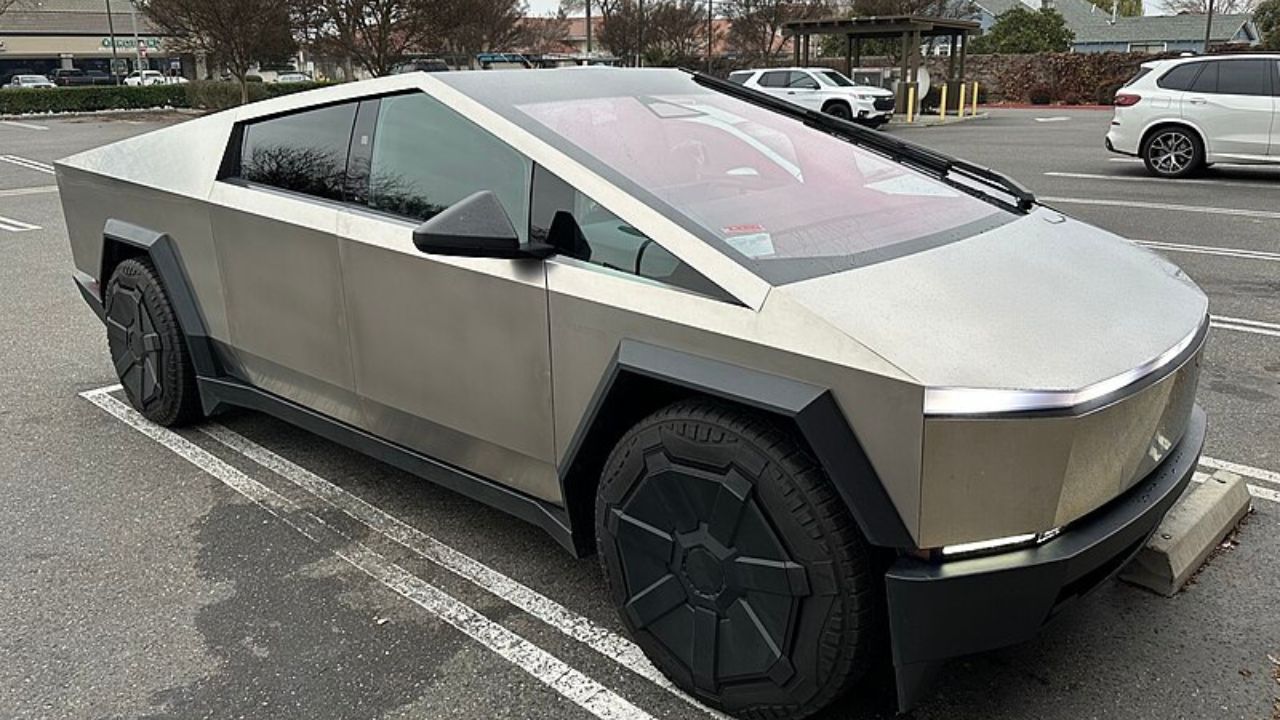Can Self Employed Take Tax Credit For Tesla Cybertruck? Yes, self-employed individuals may qualify for tax credits when purchasing a Tesla Cybertruck if it meets specific business use requirements.
As electric vehicles (EVs) become more popular and more viable for business use, many self-employed individuals are eyeing the Tesla Cybertruck as an option for their business needs.
With its robust features, high payload capacity, and eco-friendly appeal, the Cybertruck is drawing attention from self-employed individuals who want a durable, cost-efficient vehicle for their operations. But what many self-employed individuals may not know is that there could be tax incentives available to help offset the initial costs of purchasing a Tesla Cybertruck.
In this article, we will explore how self-employed individuals can take advantage of the IRS tax credit for the Tesla Cybertruck, what requirements need to be met, and the other potential tax benefits that could help reduce costs.
Let’s dive into the specifics of how the Tesla Cybertruck could benefit your business and the key aspects of the Qualified Plug-In Electric Vehicle Credit that can apply to your purchase. [Can Self Employed Take Tax Credit For Tesla Cybertruck?]
Contents
- 1 What is the Tesla Cybertruck?
- 2 Understanding the IRS Qualified Plug-In Electric Vehicle Credit
- 3 How Self-Employed Individuals Can Benefit from the Tax Credit
- 4 Key Requirements for Claiming the Tax Credit
- 5 Other Tax Benefits for Self-Employed Cybertruck Owners
- 6 Final Thoughts: Can Self Employed Take Tax Credit For Tesla Cybertruck?
- 7 FAQs
- 7.1 Can I claim a tax credit if I use the Cybertruck for both personal and business use?
- 7.2 How much can I get back through the IRS tax credit for the Tesla Cybertruck?
- 7.3 Are there other electric vehicles eligible for similar tax credits?
- 7.4 What’s the difference between a tax credit and a tax deduction for electric vehicles?
What is the Tesla Cybertruck?
Overview of Tesla Cybertruck
The Tesla Cybertruck is a fully electric pickup truck designed by Tesla Inc. It stands out in the electric vehicle world due to its bold, unconventional design and features that are geared toward off-road capabilities, durability, and functionality.
Made with an ultra-hard stainless-steel exoskeleton, the Cybertruck is built to endure harsh environments and demanding tasks. [Can Self Employed Take Tax Credit For Tesla Cybertruck?]
The vehicle comes in three variations, with different towing capacities and battery ranges to cater to various needs. Whether you’re using it for personal leisure or, more importantly, for business, the Cybertruck offers a mix of futuristic technology, environmental responsibility, and utility that is becoming increasingly popular.
For self-employed individuals who are in industries requiring a tough and versatile vehicle—such as construction, delivery, and landscaping—the Cybertruck’s durability and electric features make it an appealing choice.
It also promises a high payload capacity and an off-road package, which can be especially useful for business owners who need to transport equipment and materials. [Can Self Employed Take Tax Credit For Tesla Cybertruck?]
Why It’s Attractive to Business Owners
The Cybertruck isn’t just a sleek, futuristic car; it’s a tool that businesses can use to operate more efficiently and reduce costs. For example, many small business owners use trucks for transporting goods, supplies, and equipment. [Can Self Employed Take Tax Credit For Tesla Cybertruck?]
In these industries, an electric vehicle like the Cybertruck can help cut down on fuel costs while offering powerful performance. Furthermore, as businesses continue to embrace sustainability, owning an electric vehicle can also contribute to a positive image, especially among eco-conscious clients.
For business owners, especially those in trade or service-oriented businesses, the Cybertruck’s features like high durability, towing capacity, and off-road capabilities make it not only practical but also versatile.
Moreover, with the availability of federal tax credits, self-employed individuals can offset the upfront cost of the vehicle and reap the long-term savings it offers. [Can Self Employed Take Tax Credit For Tesla Cybertruck?]
Understanding the IRS Qualified Plug-In Electric Vehicle Credit
What is the Qualified Plug-In Electric Vehicle Credit?
The Qualified Plug-In Electric Vehicle Credit (also known as the federal EV tax credit) is a tax incentive provided by the IRS to encourage the adoption of electric vehicles.
This credit is specifically for vehicles that run on electricity and have a battery with a capacity of at least 5 kWh. For eligible vehicles, including the Tesla Cybertruck, buyers can receive a federal tax credit for a portion of the vehicle’s purchase price.
The tax credit is designed to help reduce the initial costs of purchasing an electric vehicle, making it more financially accessible. The amount of the credit typically depends on the size of the vehicle’s battery.
For many Tesla vehicles, the credit has been as high as $7,500, though this can vary based on a number of factors, such as the manufacturer’s sales numbers and specific regulations at the time of purchase.
For self-employed individuals, the tax credit can directly reduce the amount of federal taxes owed for the year, helping offset some of the vehicle’s purchase price. [Can Self Employed Take Tax Credit For Tesla Cybertruck?]
This credit can be a game-changer when it comes to making an environmentally conscious business decision while still maintaining financial viability. [Can Self Employed Take Tax Credit For Tesla Cybertruck?]
Eligibility Requirements
In order to qualify for the Qualified Plug-In Electric Vehicle Credit, the Tesla Cybertruck (or any other eligible EV) must meet a few essential requirements:
- Battery Capacity: The vehicle must have a battery with a capacity of at least 5 kWh, which is true for the Tesla Cybertruck. [Can Self Employed Take Tax Credit For Tesla Cybertruck?]
- Business Use: If the vehicle is used for business purposes, self-employed individuals can claim the credit based on the percentage of business use. The Cybertruck must be used predominantly for business purposes, as opposed to purely personal use.
- Manufacturer’s Sales Cap: For manufacturers like Tesla, there are limits on how many vehicles they can sell before the tax credit phase-out begins. While Tesla has already hit the cap for some models, the Cybertruck may still qualify for the credit depending on the timing of your purchase.
As of now, Tesla has surpassed the threshold for claiming tax credits on vehicles purchased in bulk. However, the IRS may revise the credit amounts based on policy changes and new models, so the Cybertruck could potentially be eligible under revised regulations.
How Self-Employed Individuals Can Benefit from the Tax Credit
Business Use of the Cybertruck
For self-employed individuals, the biggest opportunity to benefit from the tax credit lies in how the vehicle is used. If the Tesla Cybertruck is used primarily for business purposes, such as for transporting materials, running deliveries, or going to job sites, self-employed individuals can claim the credit based on the percentage of business use.
For example, if you use the Cybertruck 80% for business activities and 20% for personal use, you can only claim 80% of the eligible tax credit. [Can Self Employed Take Tax Credit For Tesla Cybertruck?]
This allocation is essential, and you must be prepared to document the business use of the vehicle to the IRS. Keeping a mileage log and tracking business trips versus personal trips will be necessary to justify your claim.
Examples of Self-Employed Scenarios
- Delivery Business Owner: If you own a delivery service and use the Tesla Cybertruck to transport goods to customers, the business use of the vehicle could account for most of its operation. You may be able to claim a tax credit for the percentage of time the vehicle is used to carry out deliveries.
- Construction Business Owner: Contractors and small business owners who use the Cybertruck to carry equipment, materials, and tools to and from job sites can also qualify for the tax credit. The vehicle’s high towing capacity and off-road capabilities make it a great fit for businesses that require tough, reliable trucks. [Can Self Employed Take Tax Credit For Tesla Cybertruck?]
- Freelancers and Service Providers: Freelancers or small business owners who travel to client meetings or job sites can also use the Cybertruck to save on fuel costs and potentially claim the credit. [Can Self Employed Take Tax Credit For Tesla Cybertruck?]
Each of these self-employed scenarios allows for the business use of the Cybertruck to be a major factor in claiming the credit.

Key Requirements for Claiming the Tax Credit
Determining Business Use
The IRS requires that you accurately calculate and document the percentage of business use for any vehicle used for both personal and business purposes. [Can Self Employed Take Tax Credit For Tesla Cybertruck?]
If you are using the Cybertruck for business activities like transporting goods, visiting clients, or working on-site at job locations, you need to keep a detailed record of the mileage used for these purposes.
You can track your business-related mileage manually through a physical log or use a mobile app designed for this purpose. [Can Self Employed Take Tax Credit For Tesla Cybertruck?]
Some apps allow you to categorize and document each trip to help simplify this process. The IRS may request these records if they audit your return, so it’s essential to keep detailed and accurate logs.
Important Documentation
To claim the Qualified Plug-In Electric Vehicle Credit, you will need to complete Form 8936, which is specifically used for this purpose. [Can Self Employed Take Tax Credit For Tesla Cybertruck?]
This form must be filed along with your regular tax return. Form 8936 asks for details about the vehicle, its purchase price, and the percentage of business use. You will also need to provide any other relevant documentation, such as mileage logs, that support your claim.
Keeping records of maintenance costs, charging expenses, and other operational costs will also help when it comes to calculating deductions for your Cybertruck’s use. This documentation will be crucial in ensuring that you receive the maximum allowable tax benefit.
See Also: How To Get MTA Receipt Using Credit Card?
Other Tax Benefits for Self-Employed Cybertruck Owners
Section 179 Depreciation
Another potential benefit for self-employed Cybertruck owners is the option to claim depreciation under Section 179. Section 179 allows businesses to write off a significant portion of the vehicle’s purchase price in the same year it was purchased. This can be especially beneficial if you need a large upfront deduction to reduce your taxable income.
For large vehicles like the Cybertruck, this could mean substantial savings in the form of a deduction for up to the full purchase price, subject to certain limits. [Can Self Employed Take Tax Credit For Tesla Cybertruck?]
The vehicle’s weight and the percentage of business use will determine how much of the cost can be depreciated in the first year. However, as with all tax matters, it’s important to consult with a tax professional to ensure you maximize your deductions.
Additional Deductions for Maintenance and Charging
Beyond the initial tax credit and depreciation, self-employed individuals can also claim deductions for the maintenance and charging of the Cybertruck, provided these costs are directly related to the business.
Whether you’re installing a home charging station or paying for vehicle repairs, these expenses can be written off as business costs. [Can Self Employed Take Tax Credit For Tesla Cybertruck?]
These ongoing deductions can help make owning the Cybertruck even more affordable over time, as they reduce the operational costs that come with maintaining a business vehicle.
Final Thoughts: Can Self Employed Take Tax Credit For Tesla Cybertruck?
The Tesla Cybertruck is an exciting option for self-employed individuals looking for an eco-friendly, efficient, and versatile vehicle for their business needs.
With its durability, high towing capacity, and electric powertrain, it can serve as a valuable tool for many small business owners.
However, what makes it even more appealing is the ability to claim tax credits and deductions that can offset the purchase price and ongoing expenses.
By leveraging the IRS Qualified Plug-In Electric Vehicle Credit, Section 179 depreciation, and additional deductions for maintenance and charging, self-employed individuals can save significantly on their taxes.
As long as the vehicle is used for business purposes, it can be an incredible investment for both financial and environmental reasons.
FAQs
Can I claim a tax credit if I use the Cybertruck for both personal and business use?
Yes, you can claim the business portion of the tax credit based on the percentage of business use. However, personal use will not qualify for the credit. [Can Self Employed Take Tax Credit For Tesla Cybertruck?]
How much can I get back through the IRS tax credit for the Tesla Cybertruck?
The tax credit can be up to $7,500, depending on the model and eligibility, though the final amount will depend on the vehicle’s battery capacity and the timing of your purchase. [Can Self Employed Take Tax Credit For Tesla Cybertruck?]
Are there other electric vehicles eligible for similar tax credits?
Yes, many other electric vehicles from various manufacturers qualify for the same or similar tax credits, depending on battery size and eligibility.
What’s the difference between a tax credit and a tax deduction for electric vehicles?
A tax credit directly reduces your tax liability, while a tax deduction reduces your taxable income. A tax credit generally provides more financial relief than a deduction.

Xzavier McGuire is a finance expert, blogger, and author from New York. He recently graduated in finance and writes about loans, credit cards, and money management. Xzavier helps people understand finance and make smart financial decisions.

